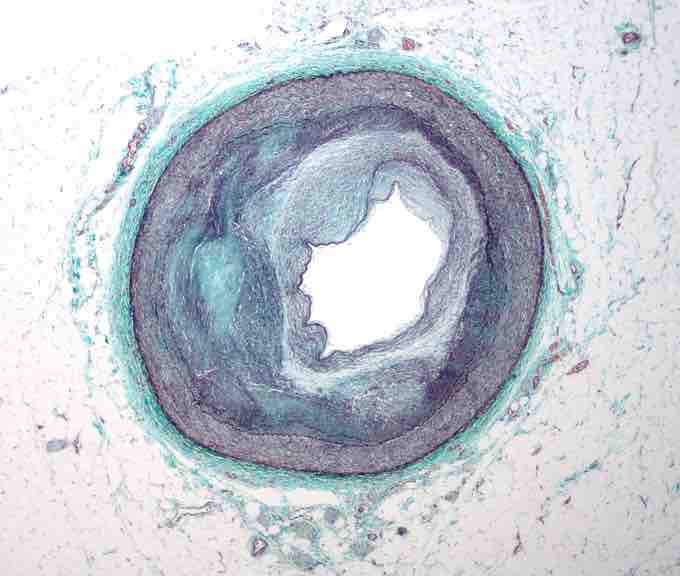Effects of Aging on Cardiovascular System
After age 30, there are changes in the blood vessels that serve the brain tissue that reduce nourishment to the brain, resulting in the malfunction and death of brain cells. By the age 80, cerebral blood flow is 20% less, and renal blood flow is 50% less than at age 30. As a person ages, the heart goes through certain structural changes: the walls of the heart thicken and the heart becomes heavier, heart valves stiffen and are more likely to calcify, and the aorta, the major vessel carrying blood out of the heart, becomes larger.
Effects of Aging on the Heart
The heart muscle becomes less efficient with age, and there is a decrease in both maximum cardiac output and heart rate, although resting levels may be more than adequate. The health of the myocardium depends on its blood supply, and with age there is greater likelihood that arthrosclerosis will narrow the coronary arteries. Atherosclerosis is the deposition of cholesterol on and in the walls of the arteries, which decreases blood flow and forms rough surfaces that may cause intravascular clot formation . High blood pressure (hypertension) causes the left ventricle to work harder. It may enlarge and outgrow its blood supply, thus becoming weaker. A weak ventricle is not an efficient pump, and may progress to congestive heart failure. This process may be slow or rapid. The heart valves may become thickened by fibrosis or calcification, leading to heart murmurs and less efficient pumping. Arrhythmias are also more common with age, as the cells of the conduction pathway become less efficient.

Cross-section of a Artery with Atherosclerosis
Deposition of fatty plaques in the lumen of the arteries can lead to blockages and clots.